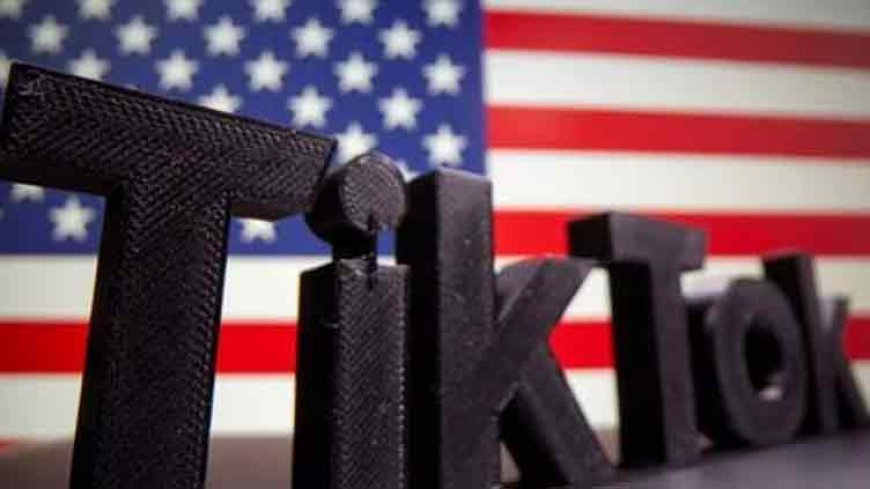US Government's Ultimatum to ByteDance: Sell TikTok or Face Ban
The clock is ticking for ByteDance as the US government issues a stern warning to sell TikTok or risk being banned. Will they comply? Click here to find out.

US Demands ByteDance Sell Shares in TikTok or Face National Ban
ByteDance, the parent company of the wildly popular TikTok app, has been ordered by the US government to sell its shares or face a nationwide ban, according to the Wall Street Journal. The directive follows concerns raised by Western powers about Chinese officials using user data from the app, with these fears intensifying earlier this year after a Chinese spy balloon was shot down in US airspace. A bipartisan bill that would allow US President Joe Biden to ban TikTok was also welcomed by the White House last week, accelerating the political momentum against the app.
Increasingly Tough Approach to TikTok
Western powers, including the European Union and the United States, have been taking an increasingly tough approach to TikTok. This is due to concerns that Chinese officials could use or abuse user data. These concerns intensified earlier this year after a Chinese spy balloon was shot down in US airspace. The US government is now ordering ByteDance to sell its shares in the app, or it will face a nationwide ban.
Bipartisan Support for Tough Stance on China
Appearing tough on China is one of the rare issues that has the potential for bipartisan support in both the Republican-run House and the Senate, where Biden’s Democratic Party holds a majority. TikTok, which claims to have over a billion users worldwide, including over 100 million in the US, has become a cultural force, especially among young people. However, it is also the target of a separate piece of legislation in the US House of Representatives.
Activists Warn of Attack on Free Speech
Activists are arguing that a ban on TikTok would be an attack on free speech and would stifle the export of American culture and values to TikTok users around the world. The app's popularity is evident in that time spent by users on TikTok has surpassed that spent on YouTube, Facebook, Instagram or Twitter and is closing in on streaming television titan Netflix, according to market tracker Insider Intelligence.
TikTok Denies Sharing Data
TikTok has consistently denied sharing data with Chinese officials and says it has been working with the US for nearly two years to address national security concerns. However, the US government workers and civil servants in the European Union, as well as in Canada, are barred from having the app on their phones.
The ultimatum to ByteDance came from the US agency charged with assessing the risks that foreign investments represent to national security. While US officials and ByteDance have declined to comment on the report, the momentum against TikTok appears to be growing.
TikTok's popularity has raised concerns about data privacy and security, as it collects vast amounts of personal information from users, including their location, search history, and social connections. The app's algorithms also analyze users' behavior and preferences to customize content and ads, creating potential risks of manipulation, exploitation, and discrimination.
These risks have prompted several countries to ban or restrict TikTok, citing national security and cultural values. India, for example, banned TikTok and other Chinese apps in 2020, citing tensions between the two countries and concerns about data privacy. Australia, Japan, and several European countries have also raised concerns about TikTok's data practices and called for more transparency and accountability.
The US government's ultimatum to ByteDance is part of a broader campaign to counter China's influence in technology and other domains, as well as to protect American interests and values.
The Trump administration initiated the campaign in 2018, with the imposition of tariffs, export controls, and other measures, and the Biden administration has continued and expanded it, with a focus on strategic competition, human rights, and global governance.
The campaign has faced criticism and controversy, both domestically and internationally, for its unilateralism, inconsistency, and impact on trade and innovation. Some experts argue that the campaign risks fueling a new Cold War, dividing the world into rival blocs, and undermining cooperation and dialogue.
Others argue that the campaign is necessary and justified, given China's assertiveness, authoritarianism, and abuses, as well as the need to defend democracy, human rights, and the rule of law. They also point out that China's rise poses not only economic and security challenges but also ideological and normative challenges, as China seeks to promote its own model of governance, values, and culture.
The debate about the US-China rivalry and TikTok's fate reflects broader tensions and dilemmas in the digital age, where technology is both a tool for connectivity and creativity and a source of division and disruption. As the world becomes more interconnected and interdependent, the need for cooperation and collaboration becomes more urgent and complex, and the role of language and culture becomes more important and contested.
In this context, the future of TikTok and other digital platforms depends not only on their technological innovations and marketing strategies but also on their social and political implications and responsibilities. As users and citizens, we need to be aware of these implications and engage in informed and constructive dialogue and action, to ensure that technology serves the common good and enhances human dignity and diversity.







